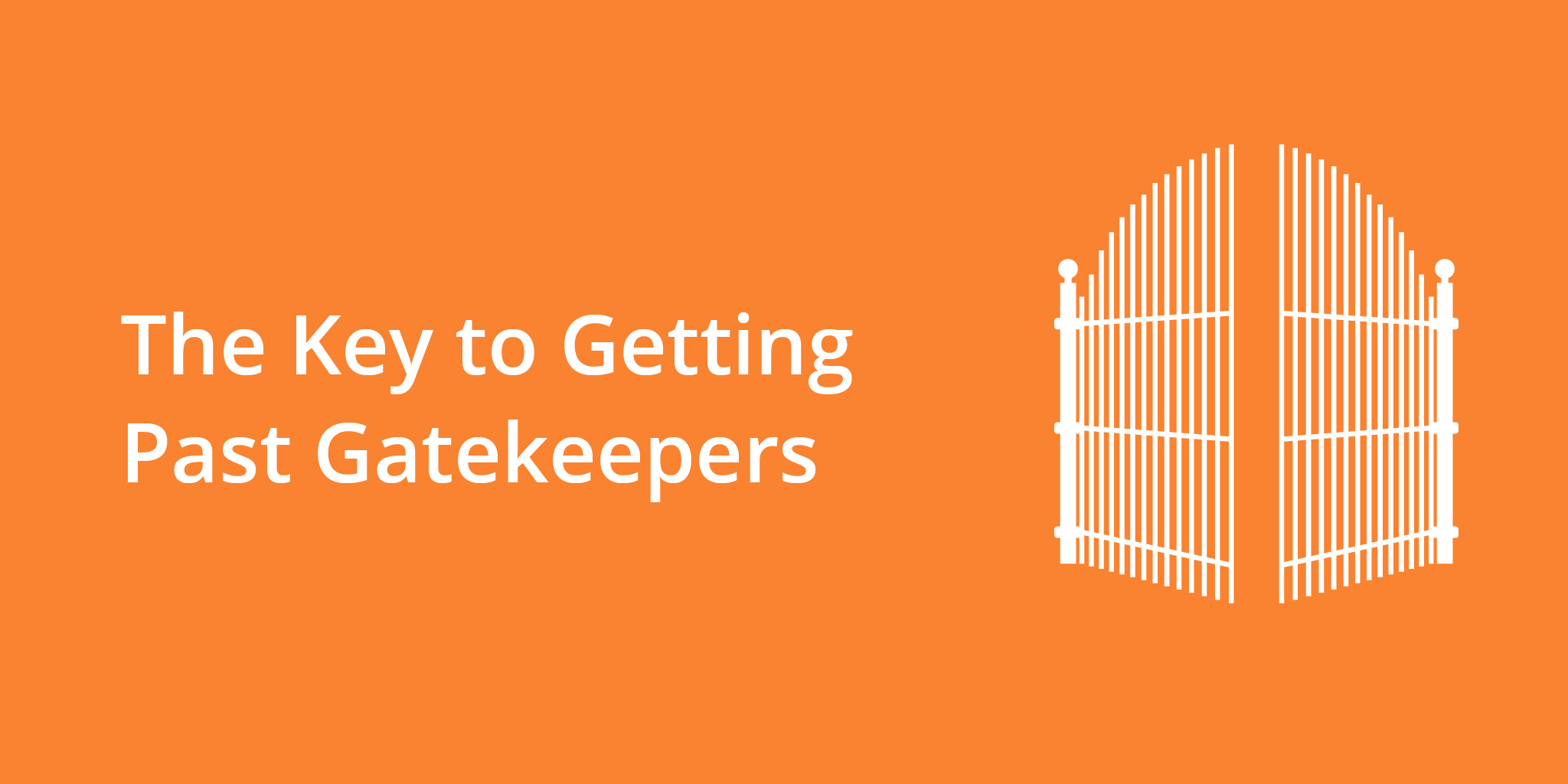
Has there ever been a more fierce rivalry than the dynamic between cold callers and gatekeepers? For the uninitiated, gatekeepers are all the people you have to get through before you can talk to the actual decision-maker your pitch is aimed at. Typically, gatekeepers are receptionists, secretaries, or virtual assistants, but they can also be spouses or relatives.
While stubborn gatekeepers can be the bane of any cold caller’s life, we must appreciate they’re only doing their job – just like we are. If they passed every prospecting call through to their senior, they’d probably be replaced within a week.
Now consider that they probably spend most of their day fielding calls from salespeople, some of whom get aggressive, speak down to them, or try to trick them. You may begin to see why a seasoned gatekeeper may initially be skeptical that your call is essential.
In this article, we’ll look at some of the top ways to get the gatekeeper on your side or to circumvent them altogether.
Be Respectful and Inclusive
The gatekeeper has the power to sink your chances of a massive sale. Being polite at all times is paramount, even if you feel they’re not listening to you or don’t understand the proposition. Be gracious even if they turn you away. Remember, it takes multiple touches even to speak to a prospect, so settle in and get to know the gatekeeper.
Focus on building a business relationship with the gatekeeper. Set the tone with a friendly opening line. Be sure to ask the gatekeeper’s name and use it in further calls. Treat them as part of the sales conversation, asking about their role in the company and where they see how your business might be of use. If you’re going to send a follow-up email, consider copying them in.
Gatekeepers can be fantastic sources of information. They typically know lots about the company, what it needs, and who you really need to speak to. Get them on your side, and you can gain an unlikely advocate for your cause.
Portray Seniority and Confidence
Nervous callers will be sniffed out as salespeople. It suggests you don’t have confidence in your product and you’re inexperienced in your field, so how could you be of benefit to the gatekeeper’s senior?
To a gatekeeper, a confident, senior salesperson that’s patient and measured seems more likely to be on par with their boss.
Senior people are more likely to be straightforward and to the point. Simply asking for the prospect by name (“David Stevens, please”) is stronger than nervously rambling on about why the gatekeeper should put you through.
Don’t pitch to the gatekeeper without good reason. In many cases, gatekeepers have little interest in the pros and cons of your value proposition. It’s the prospect you’re trying to speak to who will be able to recognize the benefits of your proposal when pitched to them. Save your energy for them, as the gatekeeper won’t appreciate being pitched something at all. The exception is where you sense the gatekeeper has some sway in decision-making.
Being relaxed and confident go hand in hand. Remember that this will be one call of many, so there’s no need to get overexcited. When a gatekeeper hears an excited voice, they can recognize a sales pitch coming. Be measured, calm, and professional, and the gatekeeper will better respect the potential value of your call.
Practice getting around gatekeepers with the use of call coaching tools. Your confidence in cold calling will grow as you’re trained on the best practices for dealing with gatekeepers.

Use Research and Planning
Demonstrate to the gatekeeper that you might actually have something important to say by establishing that you’ve researched their company and boss. In some cases, you can also research the gatekeeper to see if there are any common points of interest you can jump off. LinkedIn and other social media can often be used to mine valuable nuggets of information about the people you’re dealing with.
You can further lay the groundwork by first reaching out via other avenues. Engage with the lead through social media, whether on LinkedIn, Twitter, email, or commenting on articles they’ve written.
Even with just this basic level of interaction completed, your call turns from a cold call to a follow-up call. “I’m getting back to David about the message he sent me on LinkedIn” suggests you have a more substantial business relationship with the lead than the rest of the callers, so the gatekeeper will value your call more highly.
Use sales dialer that integrates with your CRM software to track where you are in the sales cadence, so every call is pitch-perfect. Keep notes on the lead and on the gatekeeper – everything that will help you offer a personal touch.
Alternatively, Avoid the Gatekeeper Entirely
With a particularly stubborn gatekeeper, you may find it’s better to seek out an alternative way to get in touch with your prospect, or even try to reach someone else at the company who is in charge of purchasing.
If you can go higher up, that’s perfect, but you can also consider calling the company’s HR department looking to get in touch with the prospect. HR isn’t so primed to shoo away sales callers, so they may give you more direct phone or email details.
Attempt to contact the lead directly through other methods, such as social media. Offer them something worthwhile to get them to contact you first, and you may not need to bypass the gatekeeper at all.
A reliable way to get in touch with decision-makers is through referral. People are four times as likely to buy when referred by a friend, and a referral can help you avoid the gatekeeper. At the very least, being able to namedrop that you work with other people that the lead and the gatekeeper know is useful in establishing the value you offer.
With these tips in tow, you can start to see gatekeepers as a challenge to overcome, rather than an impenetrable road block.
You might also be interested in...

Read More
What is Revenue Operations?





